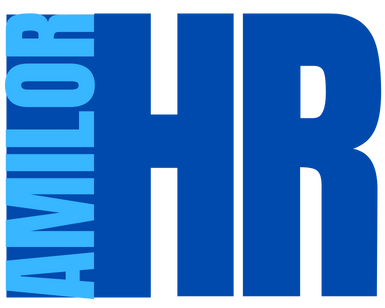HR assistants play a vital role in companies, ensuring the smooth running of the human resources department. This versatile professional manages numerous administrative tasks while acting as an interface between management and employees. Let’s take a look at the key missions and skills required to succeed in this fast-moving profession.
Main tasks and responsibilities of the HR Assistant
The HR Assistant is an essential link in the management of a company’s human capital. His or her missions are varied and touch on many aspects of human resources. Here are the main responsibilities:
- Personnel administration
- Recruitment support
- Monitoring training and skills development
- Participation in payroll management
- Relations with external organizations
- Internal communications
- Preparing meetings with employee representatives
- Updating HR tools and dashboards
- Legal and social watch
Personnel administration is a significant part of the HR assistant’s job. They draw up and monitor employment contracts, keep employee files, and manage absences and leave. This administrative rigor is essential to ensure the company’s legal compliance.
When it comes to recruitment, the HR Assistant provides invaluable support. They take part in drafting job offers, pre-select candidates and organize interviews. Their role is crucial in attracting talent and facilitating the recruitment process.
The HR Assistant is also involved in employee skills development. He/she helps draw up the training plan, manages registrations for training sessions and monitors professional development initiatives. This mission is vital to maintaining the company’s competitiveness and fostering employee fulfillment.
Technical skills and personal qualities required
To excel in the role of HR Assistant, it is necessary to possess a set of specific technical skills and personal qualities. These skills enable you to meet daily challenges and contribute effectively to the smooth running of the HR department.
Essential technical skills include :
- Knowledge of labor and social legislation
- Mastery of HR and payroll software
- Expertise in the use of office automation tools (Word, Excel, PowerPoint)
- Administrative management skills
- Accounting knowledge
These technical skills are essential for efficiently managing administrative tasks, ensuring legal compliance and using the digital tools increasingly present in the HR field.
In terms of personal qualities, a successful HR Assistant must demonstrate :
- Rigor and organization
- Discretion and confidentiality
- Good interpersonal skills and ability to listen
- Adaptability and versatility
- Responsive and able to manage priorities
- Analytical and synthesizing skills
- Diplomacy
Discretion and confidentiality are particularly important, as the HR Assistant has access to sensitive employee information. Good interpersonal skills are also crucial for effective interaction with the company’s various contacts.
Here’s a summary of the HR Assistant’s key skills:
| Technical skills | Personal qualities |
|---|---|
| Employment law | Rigor |
| HR and payroll software | Discretion |
| Office tools | Adaptability |
| Administrative management | Good interpersonal skills |
| Accounting knowledge | Analytical skills |

Training, career development and salary prospects
To become an HR Assistant, there are several possible training paths. The most common qualifications range from Bac+2 to Bac+5 specialized in HR. The most widely recognized training courses include :
- BTS in small business management
- DUT GEA (Business and Administration Management)
- Licence professionnelle Human Resources
- Master’s degree in Human Resources
These courses provide a solid grounding in labor law, administrative management and HR tools, essential for starting out in the profession. It’s worth pointing out that this position is open to beginners, offering an opportunity for entry into the world of human resources.
In terms ofcareer development, the HR Assistant has several options:
- Progress to HR Officer, HR Manager or HR Manager positions
- Specialize in a specific HR field (recruitment, training, payroll, etc.)
- Develop expertise in HRIS (Human Resources Information System)
The increasing digitalization of the HR sector is opening up new opportunities for HR assistants who have mastered digital tools and HRIS. This evolution of the profession towards greater versatility and responsibility opens up interesting prospects for ambitious professionals.
Salary prospects vary according to experience and company size:
- For a beginner: between €23,000 and €28,000 gross per year
- For an experienced profile: between €35,000 and €40,000 gross per annum
These figures are averages, and may vary according to sector, region and specific job responsibilities. It should be noted that HR assistants working for large companies or in dynamic sectors can enjoy higher salaries.
Working environment and future challenges
HR Assistants work in an office environment, generally as part of an HR team. This position is found in all business sectors, but mainly in medium-sized and large companies requiring structured HR management.
The work is carried out in close collaboration with other members of the HR department, but also with all the company’s employees. The HR Assistant plays a crucialinterface and mediation role, facilitating communication between management and staff.
The HR Assistant’s work environment stands out thanks to :
- Office work, often in open-plan offices
- Intensive use of IT tools and specialized software
- Frequent interaction with different people
- The need to manage several tasks simultaneously
- Peak periods (payroll closing, recruitment campaigns, etc.)
The future challenges facing HR assistants are numerous and reflect changes in the world of work:
- Increased digitization: HR assistants will need to master more and more digital tools and HRIS to optimize HR processes.
- Data management: With the growing importance of big data in HR, the assistant will need to develop data analysis skills.
- Flexible working: The rise of teleworking and flexible forms of employment will require HR practices to be adapted.
- Well-being in the workplace: HR assistants will be increasingly involved in quality of working life initiatives and the prevention of psychosocial risks.
- Continuing training: Given the rapid evolution of skills, HR assistants will have to play a key role in managing training paths and employee employability.
These challenges underline the growing importance of the HR assistant’s role in modern organizations. Their ability to adapt to new technologies and changes in the world of work will be decisive for the future of the profession.

